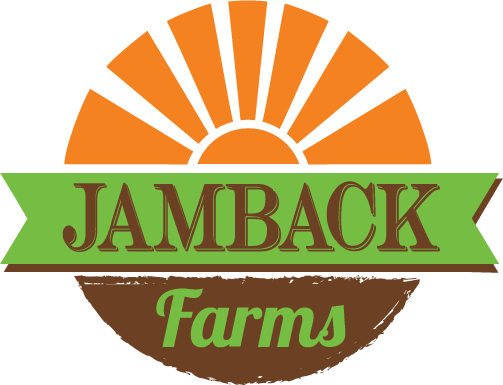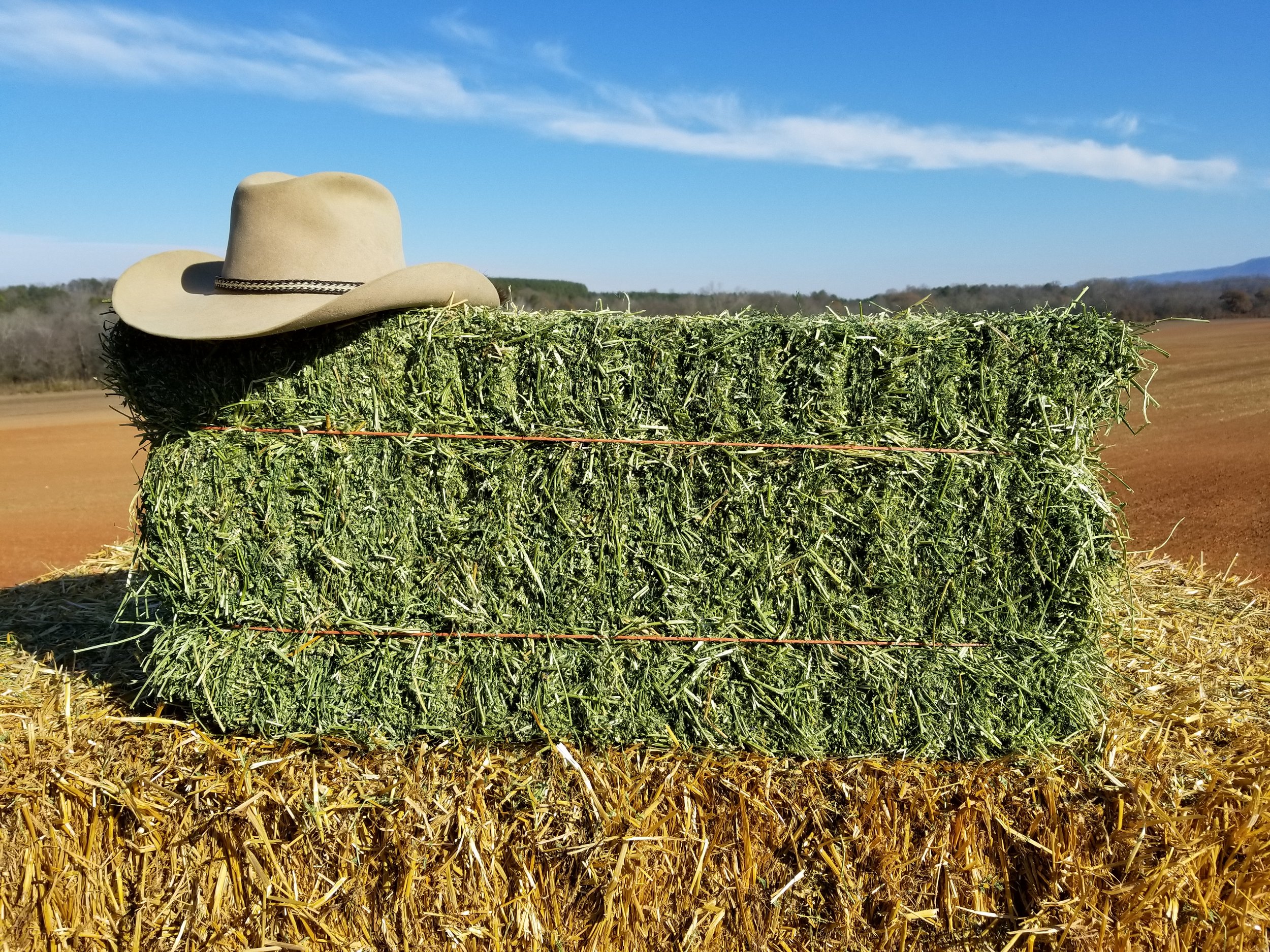Alfalfa Hay
Alfalfa is the premier legume forage and hay product in the United States. Including alfalfa in your feed program can provide nutrients and energy that can't be obtained from conventional grass hay products. While alfalfa may not be necessary for every situation, it is a very efficient way to provide the nutrition needed for high production life stages. Pregnant or lactating mares, competition or eventing horses and in certain situations young foals or older individuals can benefit from alfalfa in their forage program.
As a customer you should select alfalfa carefully*. Maturity and leaf loss primarily affects protein and TDN (total digestible nutrient) content so your alfalfa should be leafy inside the bale. Protein can be 20%-28% in immature plants and as low as 10%-14% in mature or full bloom plants. Sun and rain will leach soluble carbohydrates fast. Jamback Farms alfalfa should always be green and leafy. For more information on which cutting to choose and how to read a hay test see our Hay Selection Tool.
Alfalfa can provide significant nutritional benefit to feed programs in dairy cattle, sheep and goats. It can also be a beneficial energy source for beef cattle depending on commodity prices.
Jamback offers alfalfa in small squares that weigh between 60 - 65 lbs (38"-40" 2 string bale). Larger 3 string bales weighing 100+ lbs and 3x3x8 large squares (850lbs) are available on a custom order basis. Organic varieties are also available.
Product available for pick up, Standard Delivery and Jamback Direct
*Jamback Farms selects alfalfa from regions where blister beetles are of a low concern. Though risk of blister beetles in hay can be mitigated by time of cut (beetles concentrate more in mid to late summer), and appropriate method of harvest can reduce the chance of a beetle colony being in your hay, all alfalfa buyers should be aware of the possibility of beetle infestation. Certain species of blister beetle form large colonies increasing the chance of a toxic exposure to your horse. We are extremely careful in selecting alfalfa hay for your horses and take a holistic approach to ensure you can safely feed alfalfa in your program. Hay is brought from regions with the lowest likelihood of beetle occurrence and our producers are extremely careful with when and how they harvest.
*Feed analysis available on request.


